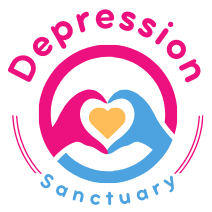Imagine what life would be like without the problems you have. What would you see yourself doing that’s different? How would that transform the way you feel each day? What difference would that make for you and the people you love?
If these questions seem strange or challenging, things may have been difficult for so long that you can’t imagine the answers. But take another moment to think: What would your life be like without low mood, self-doubt and other problems that hold you back? With all your strengths at work and dearest hopes come true?
The hope and positivity these questions point towards lie at the heart of Solution Focused Brief Therapy (SFBT), the approach I use in my counselling work in Bath, UK. With my own experience of overcoming depression in the past, I’m passionate about how SFBT helps people re-connect with hope, self-belief, and a sense of power to make changes they want for their lives.
What is Solution Focused Brief Therapy?
SFBT is a type psychotherapy developed in the 1980s at the Brief Family Therapy Centre in Milwaukee. Here, researchers and mental health professionals worked to find a new kind of therapy that would treat mental health problems better and faster than existing methods. To do this, they studied psychotherapy sessions, looking for all those interactions between client and therapist that led to positive results. SFBT includes all these interactions in a framework of techniques that make up the Solution Focused approach.
What makes SFBT different from other therapies?
What researchers found worked best in therapy explains how SFBT is different from traditional, past- and problem-focused approaches. SFBT focuses on exploring, not the cause and history of past problems, but life as the person wants it to be, with personal resources that they can use to get it. Solution Focused therapists assume:
- You don’t need to explore past problems to find solutions that improve the future
- People have personal strengths and resources they can use to improve their lives
- There are always times when the problem (no matter how big) is less, or not there at all
- Learning from these times helps you do more of what works in future
- Small positive changes lead to ripple effects of positive change
- Solutions for large problems work best when they start small
What does SFBT feel like to do?
Being in an SFBT session is an active, involving experience that helps people see things in a new and positive way. Solution Focused therapists use a range of resource-focused questions and techniques that allow people to build a detailed map of the life they’d like to be living and changes that can help them move towards that life, even after just one session. At the same time, Solution Focused therapists help people explore the past and present, to find personal strengths and resources they can use to start living the life they want. All this makes SFBT feel empowering and positive to do.
What if I want to talk about my problems?
That doesn’t mean there isn’t the chance for people to talk about past challenges. This is especially important for those who’ve never been able to share difficult or traumatising experiences they’ve had. But a Solution Focused therapist doesn’t assume every client wants to do this, and also wants to make sure that people are allowed to see clearly what they’ve done in the past that they can be proud of and want to continue in future.
How well does SFBT work?
There are many different kinds of therapy currently for people with mental health difficulties and research shows that no one type works better than any another. Some work well for some people, others less so. But SFBT, which research shows is as effective as other approaches, is also shown to be more efficient, giving people results they want often in just six sessions or less. SFBT also enhances positive affect. In other words, it feels good, allowing people to avoid painful negative emotion associated with exploring problems from the past. Critics say that by focusing on finding solutions, SFBT doesn’t allow ‘real transformation’, which they argue comes only by exploring problems in the past. My own experience as a counsellor shows me this isn’t the case. What I see is that SFBT helps people develop their own unique personal solutions for problems they have, so they can break with past patterns and live more happily at last.
Photo credit: Edward Howell
Catherine Mallorie is a Solution Focused counsellor, coach and trainer, based in Bath, UK.

